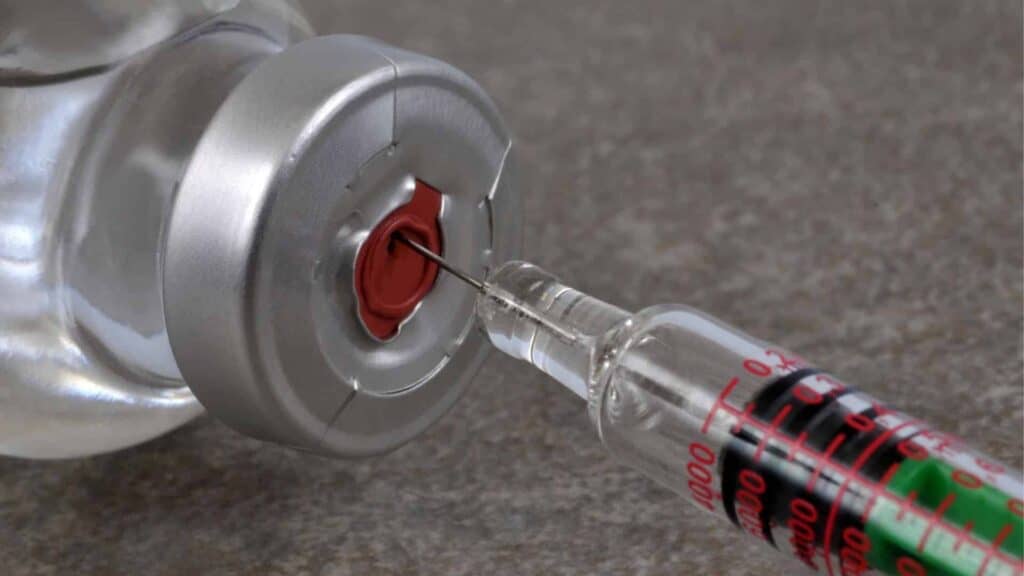
Messenger RNA Vaccines: How They Work and Why They’re a Medical Revolution
Messenger RNA (mRNA) vaccines have transformed how we combat infectious diseases, introducing an innovative and effective approach to fighting specific viruses. These vaccines, like those developed against COVID-19, not only marked a turning point in combating pandemics but also opened new possibilities for treating other conditions. In this article, we’ll explore in detail how they work, their benefits and challenges, and the impact they could have on global health.
What are messenger RNA vaccines?

Messenger RNA vaccines use groundbreaking technology to teach the immune system how to identify and fight specific pathogens. Unlike traditional vaccines, which use weakened or inactive forms of a virus, mRNA vaccines provide only the genetic instructions needed for the body to produce a protein associated with the virus.
How do mRNA vaccines work?
- Genetic Instructions
Messenger RNA (mRNA) carries the genetic code to produce a specific viral protein. In the case of COVID-19, for example, the mRNA in the developed vaccines encodes the spike protein of SARS-CoV-2, the structure the virus uses to invade human cells. - Safe Delivery
The mRNA is encapsulated in lipid nanoparticles to protect it until it reaches target cells in the body. This process ensures the RNA isn’t degraded before it serves its purpose. - Protein Production
Once inside the cells, the mRNA acts as a guide, enabling cells to produce the viral protein. This protein is harmless but plays a crucial role in training the immune system. - Immune Response
The immune system recognizes the protein as a foreign element and starts producing antibodies. It also activates T cells, which help eliminate the virus if the body is exposed to it in the future.

Messenger RNA Vaccines
Benefits of messenger RNA vaccines
1. Rapid Production
mRNA vaccines can be developed quickly, which is crucial in emergencies like pandemics. This speed is because they don’t require cultivating viruses in laboratories, unlike traditional vaccines.
2. High Effectiveness
Studies have shown that mRNA vaccines, such as those from Pfizer-BioNTech and Moderna, exhibit over 90% effectiveness in preventing severe illnesses caused by COVID-19.
3. Flexibility
mRNA technology is highly adaptable, allowing vaccines to be quickly adjusted to combat new variants or other viruses.
4. Safety
Since they don’t use the whole virus, mRNA vaccines pose no risk of causing infection. Furthermore, mRNA does not integrate into human DNA, alleviating concerns about genetic modifications.
The global impact of mRNA vaccines
Revolution in public health
Messenger RNA vaccines have the potential to transform global health, particularly in combating emerging infectious diseases and even developing personalized therapies for cancer.
Vaccines for other diseases
Beyond COVID-19, mRNA vaccines are being developed for diseases such as:
- Seasonal flu
- Zika virus
- HIV
- Cancer (specific therapies based on tumor antigens)
Reducing inequalities
By simplifying and accelerating vaccine production, this technology can make vaccines more accessible, especially in low-resource countries.

Challenges and limitations of mRNA vaccines
While revolutionary, mRNA vaccines face some challenges:
1. Storage and distribution
Many mRNA vaccines require storage at extremely low temperatures, which can be a barrier in regions with limited infrastructure.
2. Initial costs
The development and production of mRNA vaccines are still expensive, although costs are decreasing with technological advancements.
3. Misinformation and vaccine hesitancy
A lack of understanding about mRNA technology has fueled vaccine hesitancy in some populations.
The science behind messenger RNA technology
Messenger RNA technology is built on decades of scientific research. Researchers such as Katalin Karikó and Drew Weissman made significant contributions to making this approach a reality, developing techniques to stabilize mRNA and make it effective and safe.
Conclusion
Messenger RNA vaccines represent an unprecedented breakthrough in medical science. From their rapid adaptability to their proven effectiveness, they are a powerful tool in combating infectious diseases and other conditions. While they still face challenges, their potential to save lives and transform global health is undeniable.
With the continuous evolution of technology, we can expect mRNA vaccines to play an even greater role in the future of medicine.
Messenger RNA Vaccines – https://youtu.be/TbaCxIJ_VP4?si=WXVUrqknpSeL3oS2,



